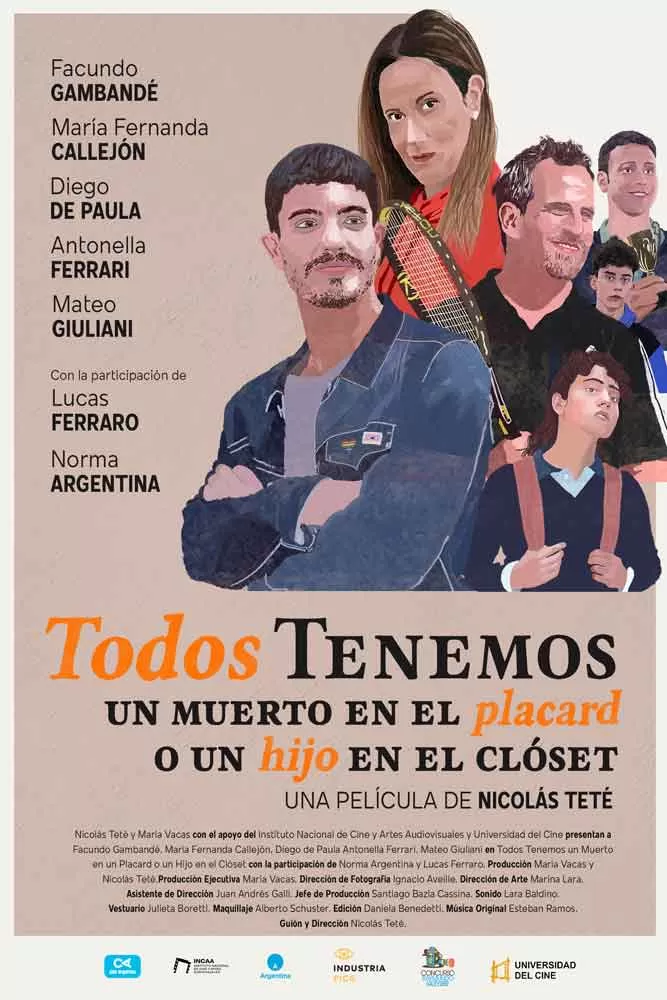Manuel returns to his hometown prepared to reveal his truth, only to confront an unexpected funeral, familial tensions, and an environment less than welcoming of his identity.
Picture this scenario: You arrive home after mustering the courage to share your authentic self, having rehearsed the words throughout your journey. Yet upon entering, you’re met with the solemnity of a funeral—your grandmother’s, no less. To compound matters, your relationship has just ended abruptly via phone call, as though fate itself conspired against this pivotal moment.
Navigating family complexities in provincial Argentina
A Skeleton in the Closet (original title: Todos tenemos un muerto en el placard o un hijo en el clóset), director Nicolás Teté’s poignant yet whimsical dramedy, unfolds in a modest Argentine community. The film masterfully portrays that universal apprehension surrounding vulnerability with those who may struggle to accept our truths.
Facundo Gambandé delivers a nuanced performance as Manuel, balancing trepidation and resolve with remarkable authenticity. María Fernanda Callejón portrays his mother—a study in contrasts, simultaneously affectionate yet constrained by convention. His father remains stoic, emotionally distant to the point of being impenetrable.
Between mourning rituals and unspoken truths
Amidst funeral receptions and relatives’ veiled scrutiny, Manuel attempts to share his truth, only to have his revelation repeatedly overshadowed by ostensibly more pressing matters—inheritance disputes and ecclesiastical opinions. The film’s humor remains thoughtful rather than derisive, while its dramatic elements ring true without descending into exaggeration.
One particularly resonant line captures the family’s conflicted response:
“Had you arrived with a pregnant girlfriend, we might have crafted some explanation. But this… this presents difficulties.”
Why this narrative merits attention
– The story maintains warmth and appeal despite addressing painful rejections
– Exceptional ensemble performances, particularly in portraying familial interactions laden with unspoken tensions
– An authentic portrayal acknowledging that personal revelations don’t always culminate in celebratory acceptance
Final assessment
While A Skeleton in the Closet may not redefine cinematic boundaries, it offers a fresh perspective on family dynamics during pivotal life moments. This queer narrative, imbued with distinctive Argentinian cultural flavors, strikes an ideal balance—neither overly sentimental nor excessively restrained—making it perfect for contemplative viewing that blends gentle humor with heartfelt moments.


